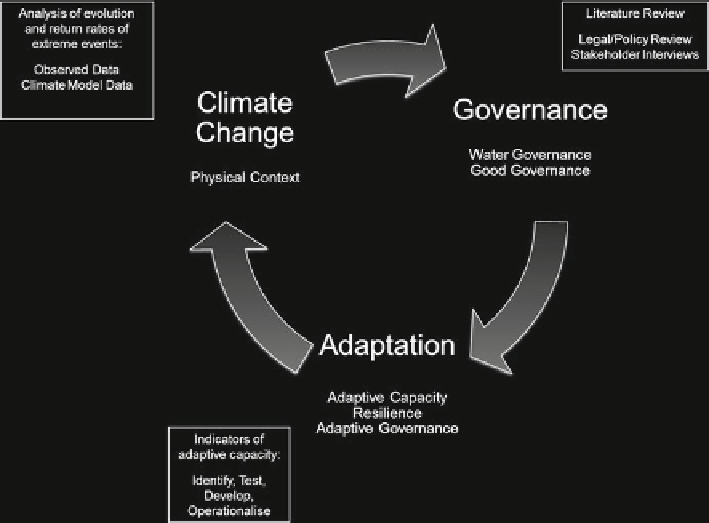Environmental Engineering Reference
In-Depth Information
Fig. 5.2
Iterative methodological approach in relation to analytical background
the governance system's ability to cope with shocks; that is, using extremes as a
proxy for assessing adaptive capacity to events that might become more recurrent or
intense in a future, warmer world. While the research drew on climate data and
information to contextualise the climate related challenges that the case areas face,
the primary methodological approach chosen was a qualitative one.
5.2
Qualitative Research
Quantitative research presumes that the social world 'lends itself to an objective
form of measurement, and that the social scientists can reveal the nature of that
world by examining lawful relations between elements that, for the sake of accurate
definition and measurement, have to be abstracted from their context' (Morgan and
Smircich
1980
, p 498). However, the more relaxed ontological assumption that
human actors and the social world are a more open ended process that both shape
and are shaped by external environments, requires more qualitative methodologies
(Morgan and Smircich
1980
). This is not to fully exclude the relevance of quantitative
methodologies, or the fact that the appropriate quantitative techniques can be used

Search WWH ::

Custom Search